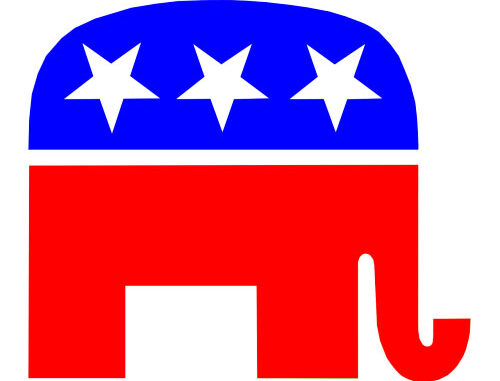
11/19/2020
Simon Jaronski | Staff Columnist
With the 2020 election in the rearview mirror, a few key lessons have become apparent for both parties.
For Democrats, there was a major letdown: Their previously attractive electoral prospects were quickly perforated, and progressive hopes for at least the next two years were dashed along with them.
Despite Donald Trump’s ousting from the White House, the party massively underperformed down-ballot. Visions of a Democratic-led senate and an expansive House majority quickly dissipated as the GOP held onto a number of vulnerable seats, and even strengthened their minority in the House.
On the Republican side, one thing is now clearer than ever: the Trumpian brand of politics is here to stay. Despite a significant loss in the popular vote, 73 million Americans still voted for Donald Trump. Now, the question is, what does this trend say about the state of the GOP and our country as a whole?
Long gone are the days of John McCain, Mitt Romney and Jeb Bush. The terrain of the GOP’s reliable electorate has been altered immutably as a result of Trumpism, and will demand candidates in the same vein. Joe Biden’s margins of victory in 2020 are not enough to indicate a clear repudiation of Donald Trump.
So, who are the likely frontrunners for the Republican nomination in 2024? There are a few logical successors to the MAGA empire, but we would be remiss if we did not first attend to the most obvious one: Trump himself.
It is not entirely implausible that Trump will run again in 2024; in fact, he is rumored to be considering it already. Whether or not this second bid will be a major publicity stunt meant to maintain relevance, or a legitimate attempt to reclaim the throne, will have to be revealed in time.
In Trump’s mind, the wound of a Biden victory is still smarting, but four years’ worth of contemplation at Mar-a-Lago could beget a change in mindset. In that case, perhaps he would be ready to pass the torch to someone in his inner circle.
Within the actual Trump family, the most likely person to throw their hat in the ring would be Donald Trump Jr. In keeping with the dynastic undercurrent that has emerged during the Trump family’s political ascent, it would make sense that Don Jr. gets the nod.
He will inherit the playbook his old man practically invented: aggravating liberals on Twitter, decrying the “Lamestream Media” and displaying a lack of regard for political etiquette.
However, his appeal to swing voters and independents might be lacking. Regardless, Ivanka and Eric probably do not have what it takes to steer the SS Trump, so be on the lookout for a potential Don Jr. ticket.
The second obvious choice would be Vice President Mike Pence. His popularity with Evangelical Christian voters cannot be denied, but whether his persona can appeal to that substantial portion of the red-blooded electorate in the same manner as Trump is hard to tell. It’s difficult to imagine this demographic voting for anyone else, but turnout level will ultimately be the key factor.
His even keel demeanor might swing back independent-leaning Republicans and suburbanites who have been alienated by Trump, which will be a crucial task for Republicans moving forward. Keep an eye out for a Kamala Harris and Mike Pence rematch in 2024.
If the Trump heir apparent is not directly connected to the bloodline, then several other viable candidates would still be available. What about Ted Cruz, the current junior Senator from Texas, and Trump’s one-time debate sparring partner turned ardent supporter?
Cruz adds a level of ivy-league elitism to the traditional Trumpian crudity, and would surely have immense popularity with the conservative base given his devotion to right-wing orthodoxy. A tough stance on abortion, a hawkish foreign policy toward China and a famed 21-hour filibuster involving Dr. Seuss are all highlights on a long list of accolades.
In the same mold as Cruz, we have Senators Josh Hawley (R-Mo.) and Tom Cotton (R-Ar.), both young, ambitious legislators who have stood out as respectable purveyors of Trump populism in an era marked otherwise by a lack of civility and bi-partisanship.
Marco Rubio (R-Fl.) already had a respectable showing in the 2016 primaries and is itching to run again. To reiterate, it remains to be seen if the same voters will be attracted to this diluted Trumpism, which is ultimately what this specific group of candidates will attempt to create. In other words, they will seek “Trumpism sans Trump.”
For the sake of brevity, it will be impossible to cover every possible contender. Moderate GOP Governor Larry Hogan of Maryland is rumored to be mulling over a possible bid for the White House, as are Florida Governor Ron DeSantis and former UN Ambassador Nikki Haley. The field could be as numerous and diverse as 2016, with some interesting intra-party dynamics likely to play out.
For down-ballot races, expect to see a bevy of MAGA-espousing right-wing fringe candidates seeking to make primary elections a living hell for the last bastion of the old-world GOP. Q-Anon believers have already slipped through the cracks (e.g. Marjorie Taylor Greene in Georgia), and more will soon follow.
So, what are the big takeaways here? Trumpism is unlikely to disappear anytime soon, and a sclerotic Republican majority (dependent on the Georgia runoffs) in the Senate will most likely attempt to stymie the Biden administration’s progressive agenda.
Perhaps the dynamics of Trump’s base and media apparatus will have changed by the time the next presidential election rolls around, but the existence of 73 million Trump voters will have not. Both parties need to adjust their strategies going forward: The GOP needs to determine whether or not it values a continuation of Trumpism, a modification of it or a total cleansing, and the Democrats need to decipher what went wrong, and how they can win back disaffected voters.




